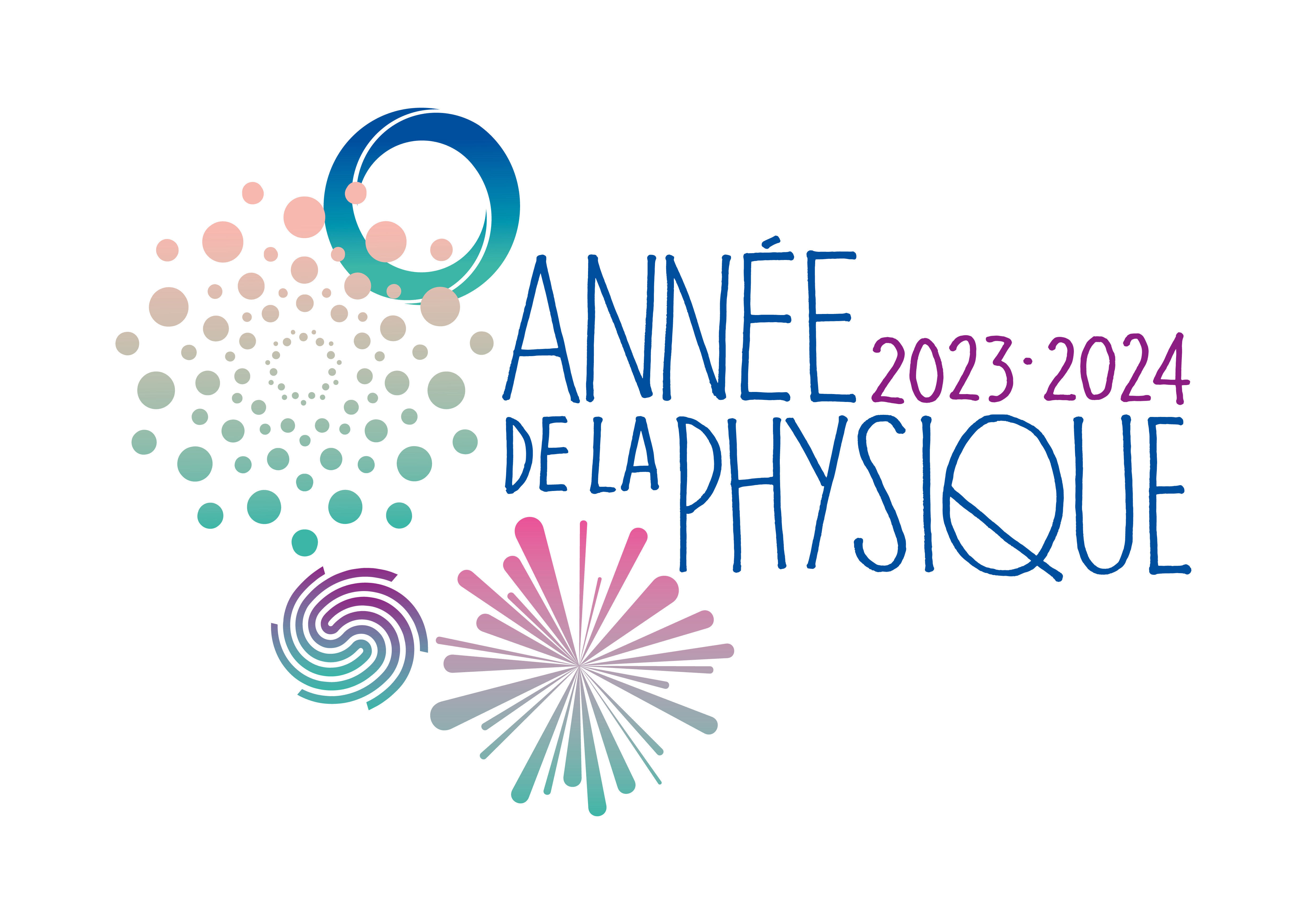Discovery workshops for kids
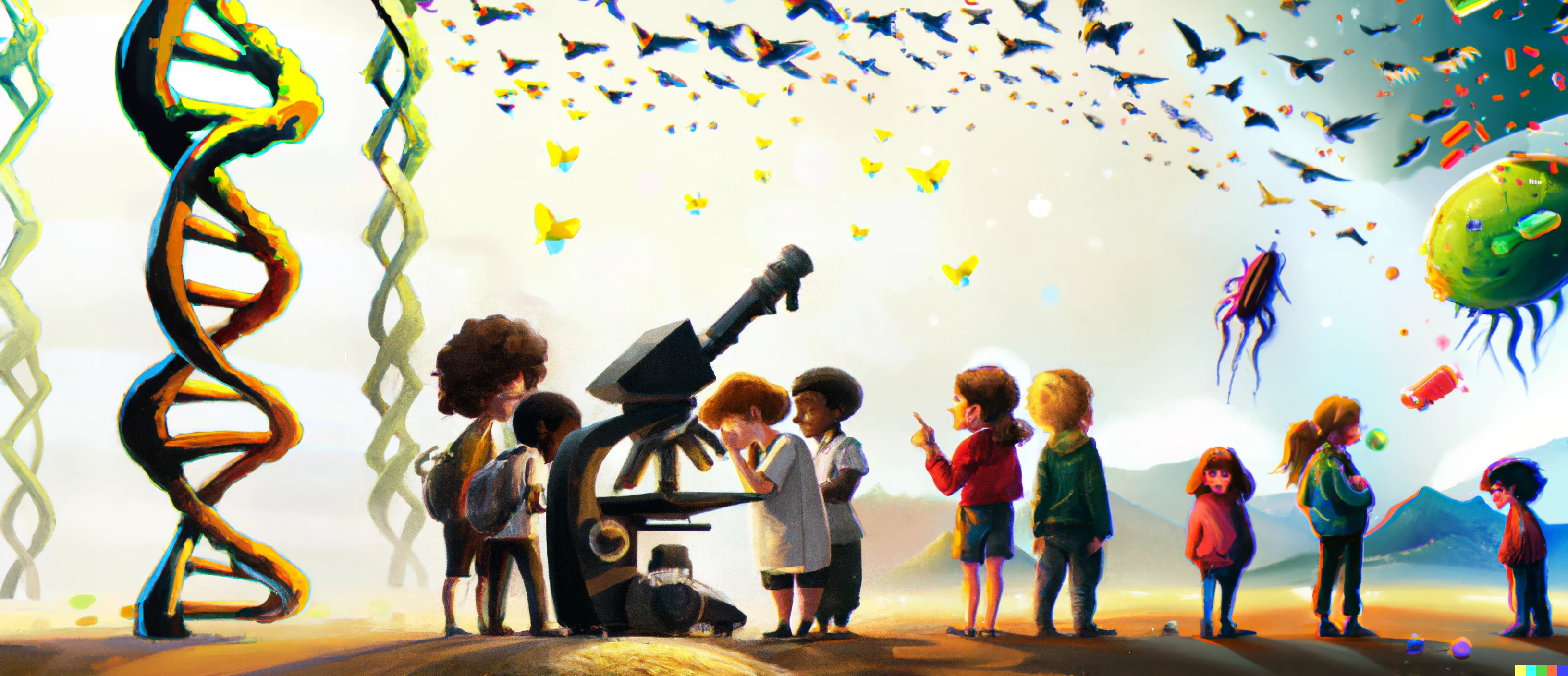
Since 2023, the Jean Perrin Laboratory has welcomed primary, middle and high school classes. During these visits, students explore the world of scientific research, meet researchers and participate in workshops on the different themes studied in the laboratory.
Since the launch of the project in March 2023, we have welcomed 7 classes, totaling 170 students, aged 8 to 18, ranging from CE2 to Terminale.
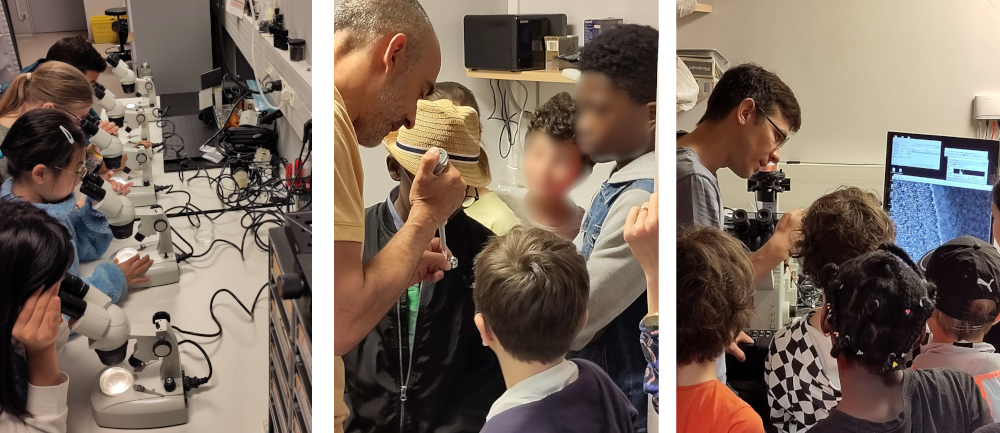
Outreach
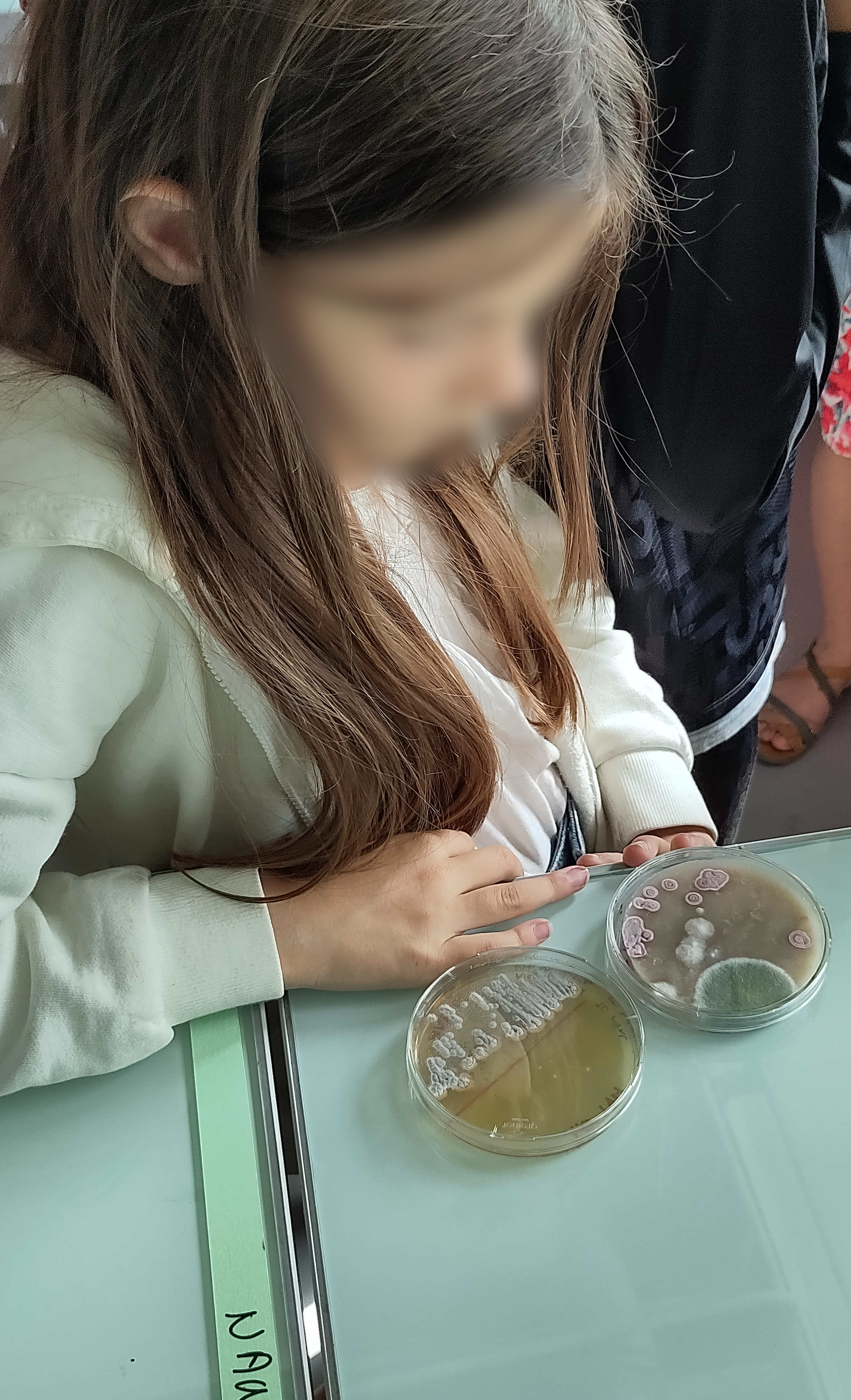 On our scale, this project aims to bring the world of research closer to the general public, to promote science and the scientific method, as well as to illustrate the work of researchers. We want to offer teachers and students the opportunity to explore scientific topics outside the classroom walls.
On our scale, this project aims to bring the world of research closer to the general public, to promote science and the scientific method, as well as to illustrate the work of researchers. We want to offer teachers and students the opportunity to explore scientific topics outside the classroom walls.The researchers mainly come from privileged socio-professional categories. In order to promote greater social diversity in the long term, it seems essential to us to prioritize access to our laboratory to classes from less privileged establishments. This means that we want to welcome schools that have fewer opportunities to address scientific topics, especially in contexts other than the classroom, and with students who have less opportunity to meet scientists.
Presentation of the lab
This thematic diversity allows us to bring together people with varied interests and broad skills within the same laboratory. This environment thus offers the general public a dense and varied overview of today's biophysics research. Additionally, the laboratory atmosphere is warm and staff members are open to discussion, making it an ideal setting for welcoming school visitors.
Our laboratory is equipped with a wide range of instruments such as microscopes, spectrometers, microfluidics devices, cell culture rooms and various manufacturing tools. In addition to popularizing research subjects, this allows us to address many technical aspects and interact more with our visitors.
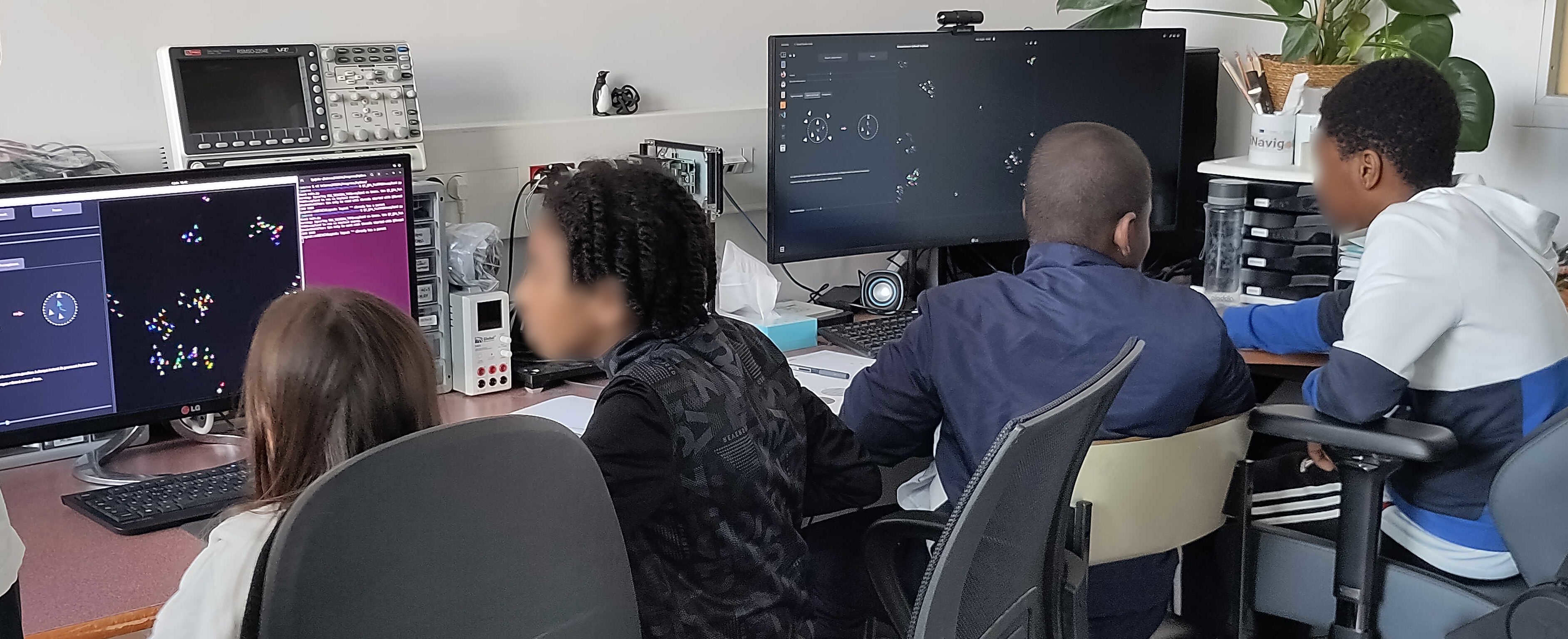
The Laboratoire Jean Perrin is therefore the ideal place to discover research professions, explore certain major biophysics subjects, immerse yourself in the environment of a laboratory and discover the tools used there.
Visits
First contact
In class, before the visit
Our experience suggests that this preliminary visit is very effective, promoting better communication with students and better preparation for the visit.
In the lab
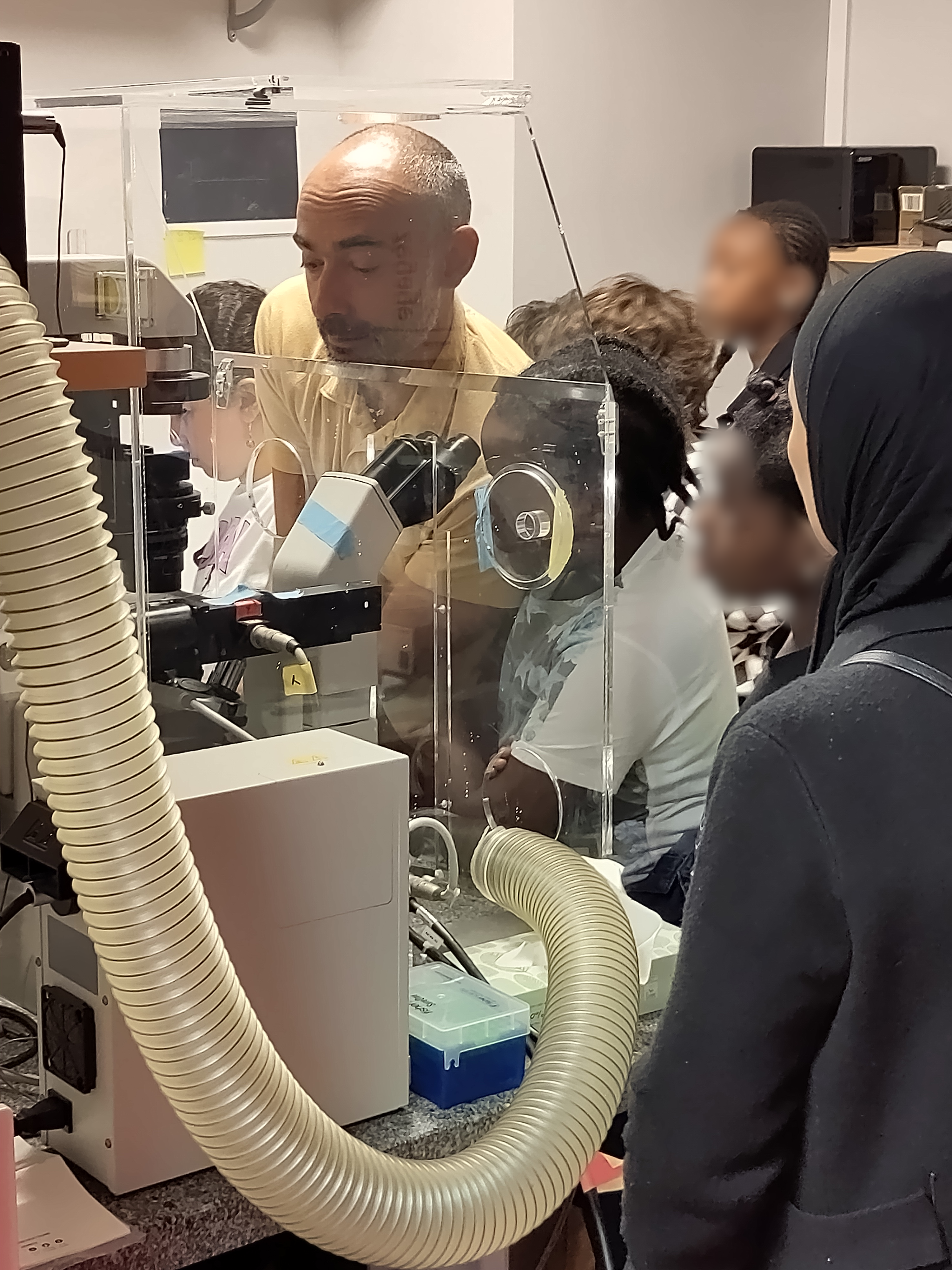 The duration of the visits varies from 1 to 2 hours depending on the age of the students. In order to personalize the visits as much as possible, we offer a large catalog of workshops. The topics covered can thus be adapted to the teacher's educational project and the interests of the students. During the visit, the students are divided into several groups which rotate between the different workshops.
The duration of the visits varies from 1 to 2 hours depending on the age of the students. In order to personalize the visits as much as possible, we offer a large catalog of workshops. The topics covered can thus be adapted to the teacher's educational project and the interests of the students. During the visit, the students are divided into several groups which rotate between the different workshops.At the end of the visit, all groups come together for a conclusion and a discussion with all the speakers. This is a special moment when students can ask the researchers any questions they want.
When we return to class, we ask students to complete a short questionnaire to collect their impressions, their preferences and what they have learned. This allows us to improve both the organization of visits and our way of popularizing our research subjects.
Below you will find a list of workshops we offer. This list is mainly given for informational purposes only. Depending on the availability of researchers, some workshops may not be available, and others may be added. It should be noted that we make a lot of effort to adapt these workshops, and in particular our speech, to the age of the students.
- Scales in biology: a workshop on the sizes of objects that we study in biology. In this workshop, we will help students build an intuition about the sizes of biological objects. And we will also talk about the work of Jean Perrin which earned him his Nobel Prize.
- We all have bacterias: a workshop where students can observe their own bacteria. For this workshop, bacteria samples are collected by the students during the preliminary class visit (about 1 week before coming to the laboratory). The samples are then brought back and cultured in the laboratory. This is an opportunity to discuss the importance of bacteria to our health and the environment, and it's also a great opportunity for students to do a science experiment themselves.
- Life of a bacterial community: a workshop where students can observe through a microscope how thousands of bacteria move inside a colony. We can discuss the collective behavior of bacteria, how a colony expands, etc...
- The zebrafish brain: a workshop where students can observe zebrafish larvae. We will talk about their anatomy, their behavior, and their brain. Thanks to microscopes present on site, the pupils will even be able to see live the activity of the brain of living and intact larvae.
- Bird flocks in a computer: a workshop on the computer simulation of collective behavior. Students will be able to use an interactive program to understand how the simulation parameters influence the behavior of the 'birds'.
- Understanding Touch : a workshop on the biology of touch, with an emphasis on the perception of roughness.
Contact
If you are interested, just send us an email. We can then discuss your educational objectives, the interests and level of your students to best adapt the proposed activities.
Contact email: Sciences-LJP-Vulgarisation-Scientifique@admp6.jussieu.fr
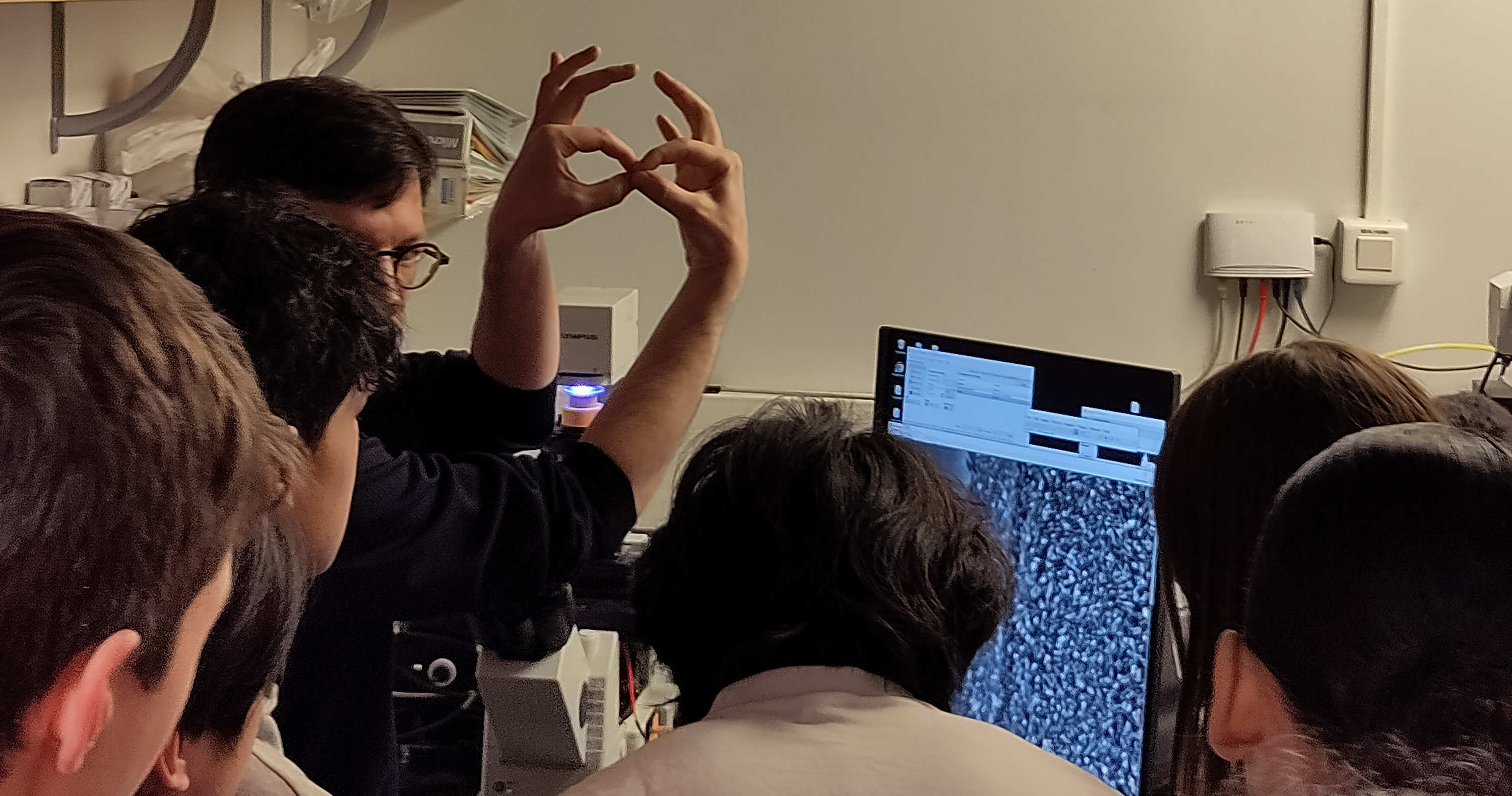
Labelled project : Année de la Physique 2023-2024.
